Broken Promises
Broken Promise (1997)
Produced and Edited by Nick Szuberla with Polish Village / Industrial North neighborhood residents
Funding: Funding Exchange, Paul Robeson Fund for Independent Media.
Additional resources: 37 hours of footage, 113 negatives, prints, artifacts from local campaign.
In 1998 collaborating with local residents I facilitated a community-produced documentary that shed light on the City of Toledo’s use of eminent domain to take over and destroy a neighborhood paving the way for the expansion of a Daimler-Chrysler Jeep manufacturing plant.
Despite the 83 homes being well-maintained, Toledo labeled the area as a slum, leveraging Daimler-Chrysler's threats of leaving town to justify their actions. In the process, Chrysler secured a substantial $232 million in state and municipal aid for the construction of their new plant. The city utilized $28.8 million from a loan granted by HUD to relocate the property owners, and they employed eminent domain to acquire the homes of those who resisted their offers.
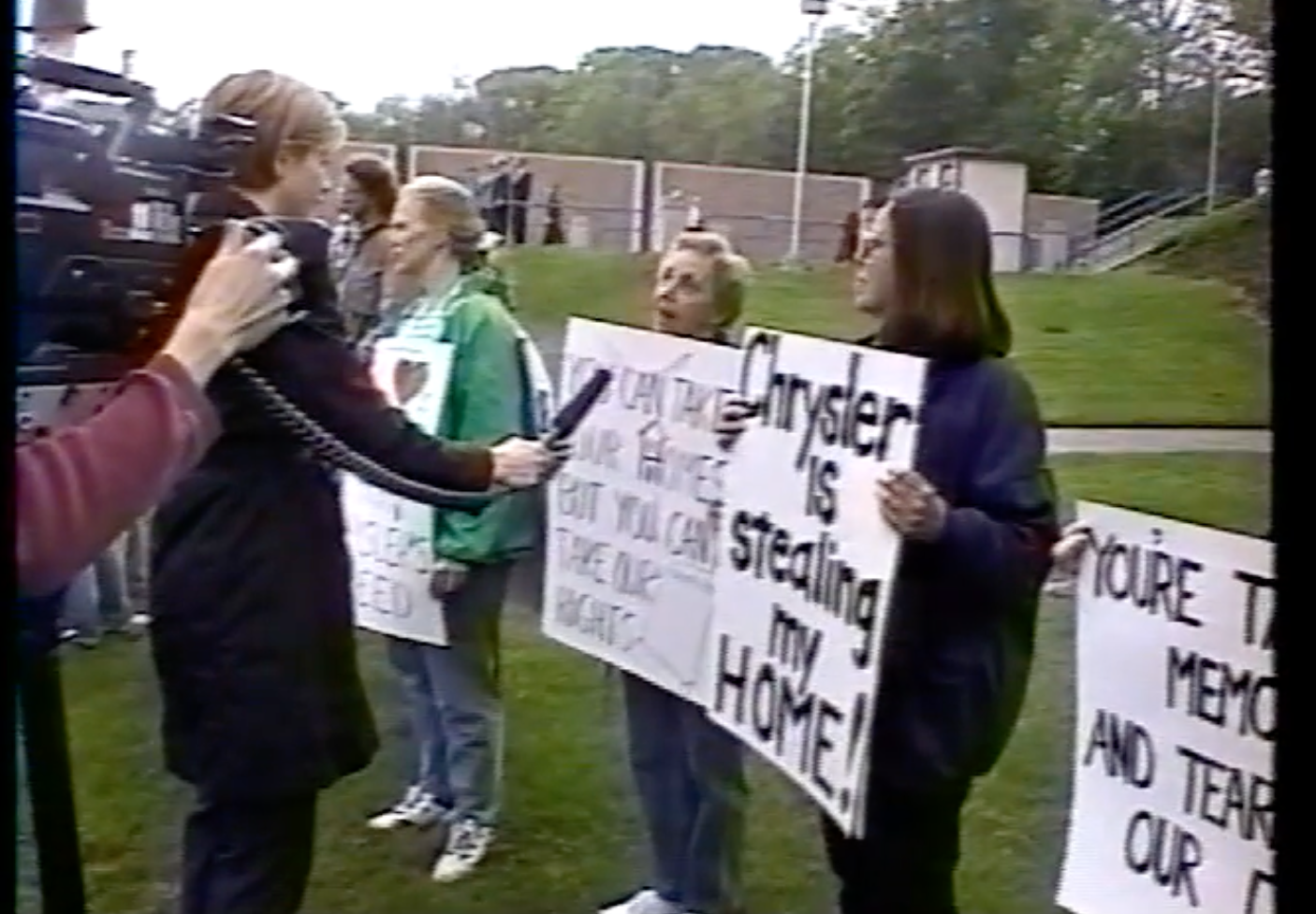
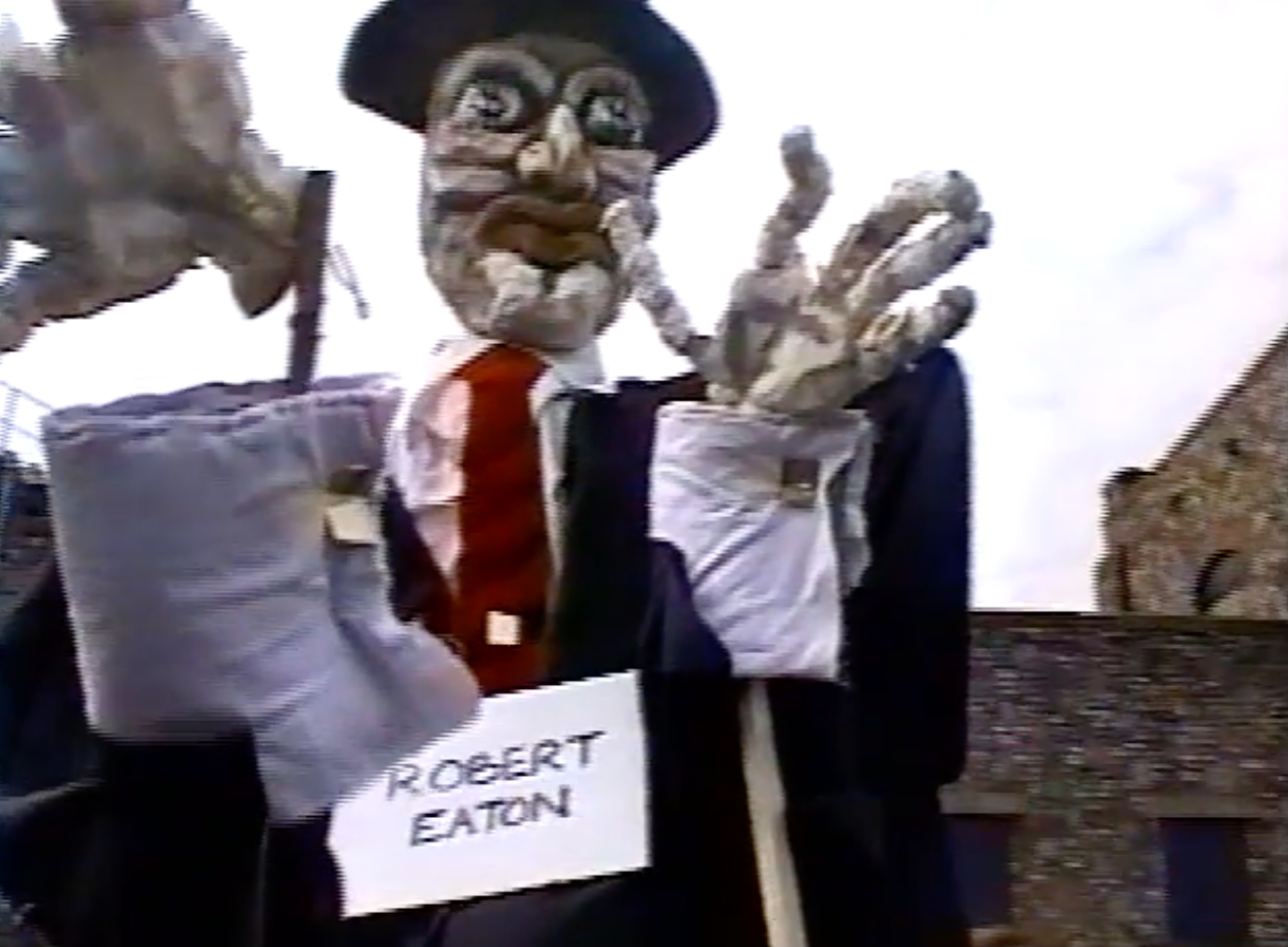
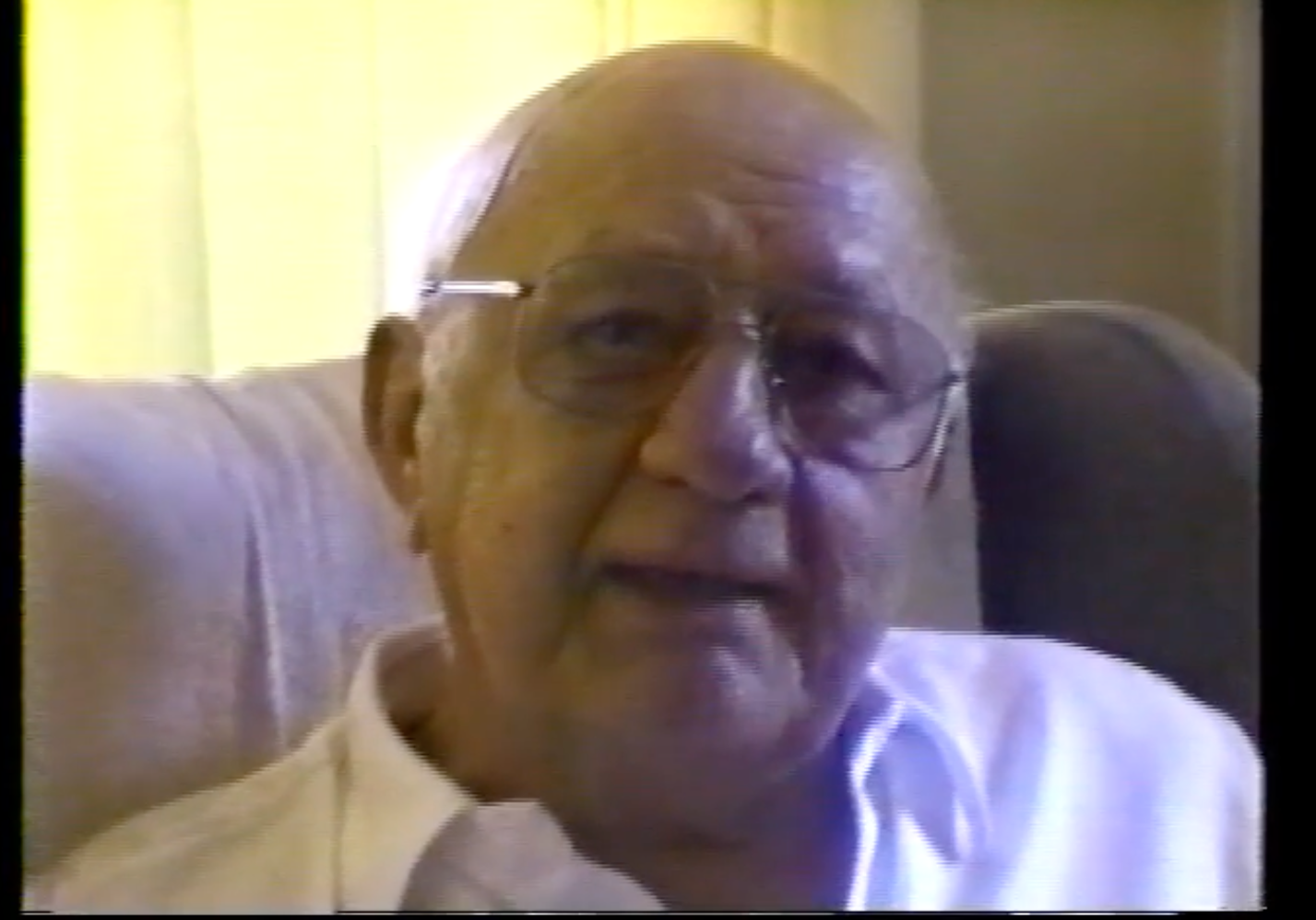
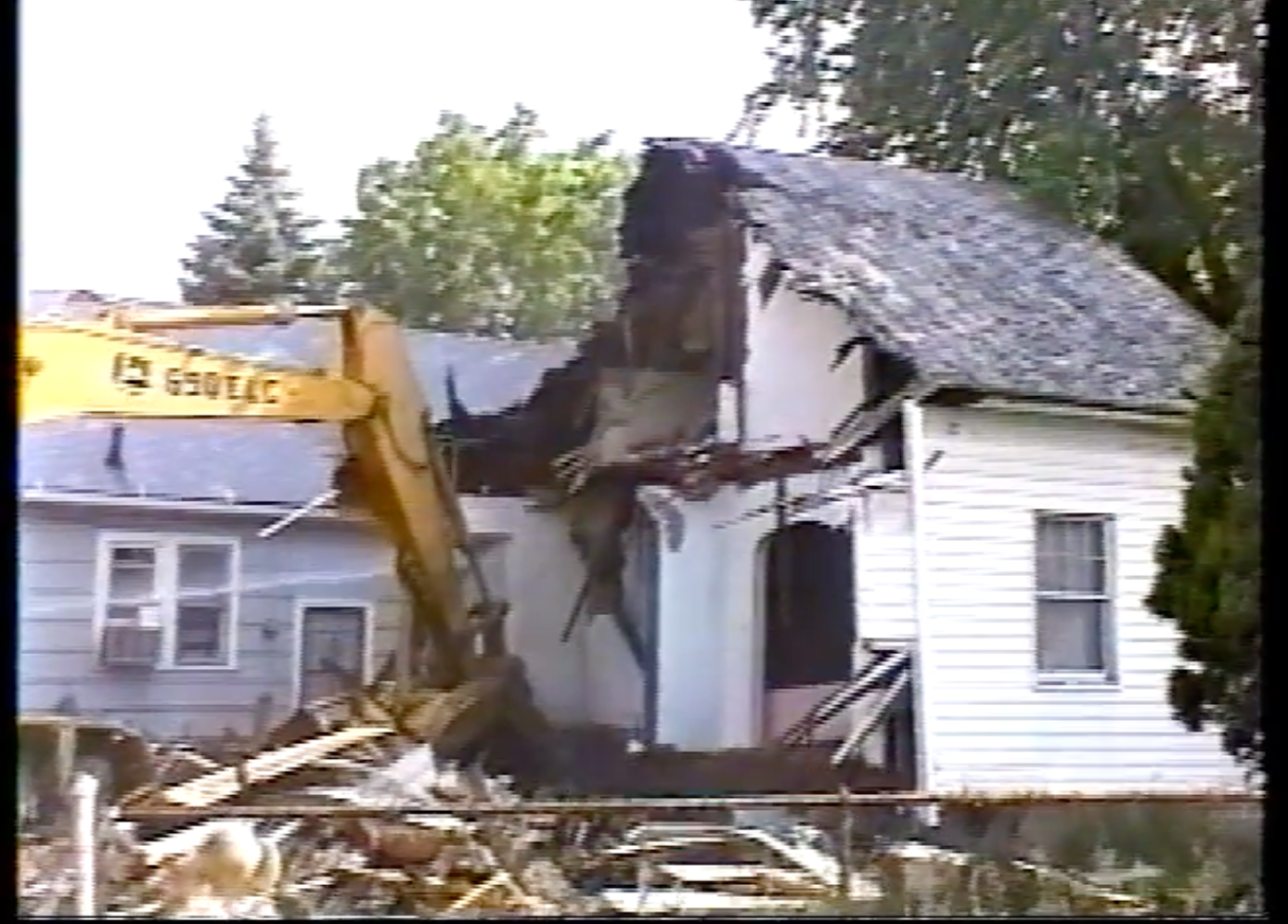
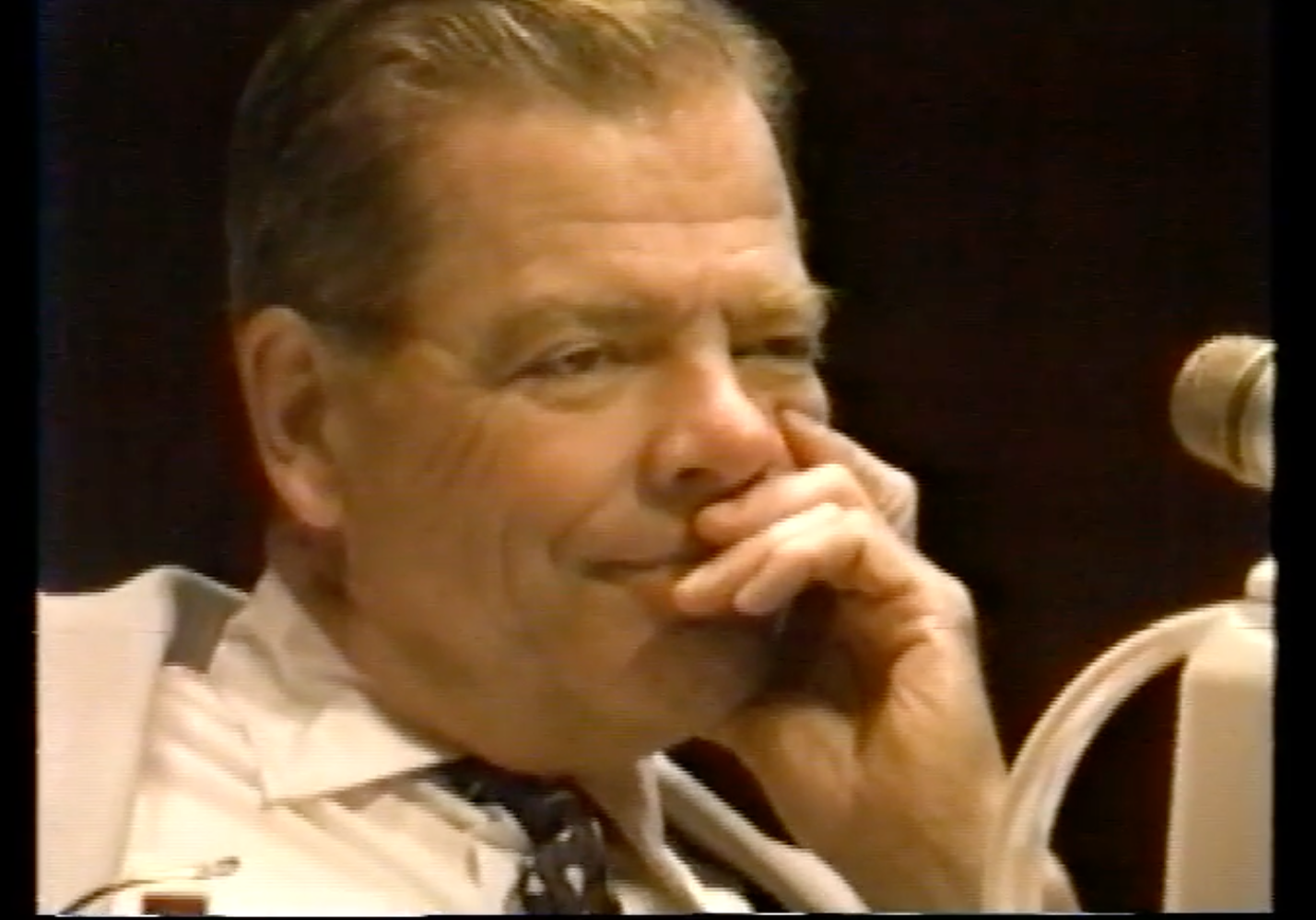
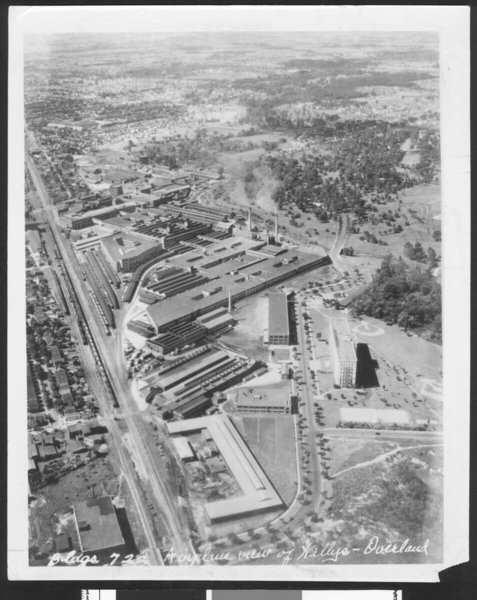
Throughout the making of the film, the neighbors faced intimidation, legal harassment, and violations of their rights. Secret negotiations took place, leaving them with no say in the fate of their homes. However, the determined neighbors decided to take action. With interviews and footage shot by the residents, the documentary became a powerful tool for organizing resistance against the unjust practice of eminent domain.
The film played a crucial role in recruiting the national civil rights organization, Public Citizen to support filing a lawsuit. As a result, the City of Toledo faced significant financial repercussions, costing them millions of dollars in addition to what had already been spent.
The documentary, a testament to the community's resilience, shed light on the plight of these homeowners and the necessity for change in how eminent domain is applied. While the homes were knocked down, the residents felt that they had ‘given it a fight’ and sent a message about future actions by the city.
The power of communities making films about themselves is immeasurable and transformative. When individuals within a community take the initiative to tell their own stories through the lens of a camera, they gain control over their narratives and empower themselves to represent their experiences authentically. When communities face oppression and intimidation and feel failed by their civil society organizations (?) (academic, media, policy) often picking up the camera and airing grievances is the first step towards building grassroots power.
Through the process of filmmaking, community members strengthen their bonds, foster empathy, and create a shared sense of identity and purpose. By crafting narratives that resonate with their lived realities, in this case the destruction of their homes, communities can challenge stereotypes, advocate for social change, and inspire others. The act of filmmaking itself becomes a form of self-empowerment, driving positive shifts within the community and beyond, as it fosters understanding, compassion, and a collective drive to create a brighter future.
Articles, Research, and News about Broken Promises:
National Center for Public Policy and Research (2007) City Destroys One Auto Business to Make Landscaping for Another.
Gideon Kanner (2001) The New Robber Barons. National Law Journal
Jule Wallace (2001) Should City Aid Land Deals for Private Business? Akron Beacon
Citizens Fighting Eminent Domain Abuse (2002) The Top 10 Abuses of Eminent Domain.
Dana Berliner (2002) Government Theft. Institute for Justice
Ralph Nader, Alan Hirsch (2004) Making Eminent Domain Humane. 49 Vill. L. Rev. 207.

